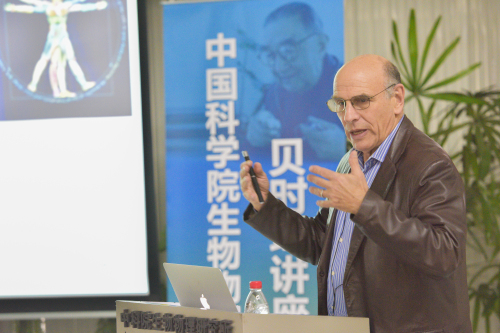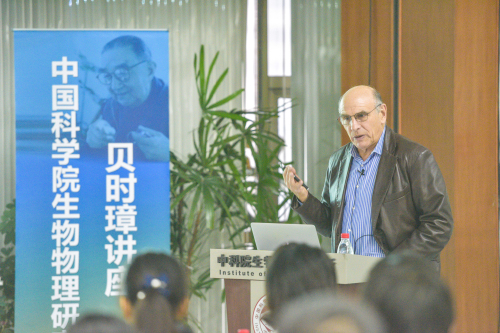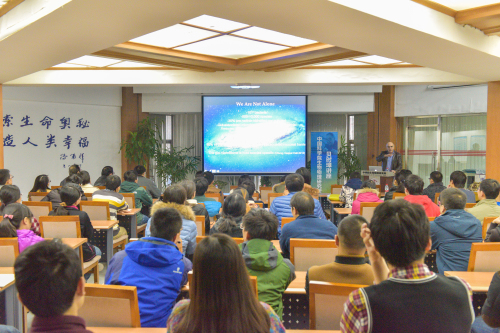Prof. Dennis Kasper from Harvard Medical School Visited IBP and Delivered the BEI Shizhang Lecture
On Nov. 13th, 2015, Prof. Dennis Kasper visited Institute of Biophysics (IBP), CAS and gave a lecture entitled Mechanisms Used by the Microbiome to Signal the Immune System. This lecture, which is a part of the special lecture series of Shizhang Bei Lecture of IBP, was hosted by Prof. LIU Zhihua.
Prof. Dennis Kasper received his M. D. from University of Illinois in the USA in 1967. He is currently a professor in the Department of Microbiology and Immunobiology at Harvard Medical School. His groups are mainly interested in the interactions of microbes, both commensals and pathogens, with the immune system, as well as bacterial carbohydrates.
In 2014, Prof. Dennis Kasper’s lab published a Cell paper entitled Sphingolipids from a Symbiotic Microbe Regulate Homeostasis of Host Intestinal Natural Killer T cells. Prof. Dennis Kasper introduced their recent progress on the study of Sphingolipids, including the intestinal microbe Bacteroides fragilis modifies the homeostasis of host invariant natural killer T(iNKT) cells by supplementing the host’s endogenous lipid antigen milieu with unique inhibitory sphingolipids. The process occurs early in life and effectively impedes iNKT cell proliferation during neonatal development. Consequently, total colonic iNKT cell numbers are restricted to adulthood, and hosts are protected against experimental iNKT cell-mediated, oxazolone-induced colitis. In studies where neonatal mice are unavailable to bacterial sphingolipids, Prof. Dennis Kasper’s lab found that treatment with B. fragilis glycosphingolipids reduces colonic iNKT cell numbers and confers protection against oxazolone-induced colitis in adulthood. The results of Prof. Dennis Kasper’s lab suggest that the distinctive inhibitory capacity of GSL-Bf717 and similar molecules may be useful to the treatment of autoimmune and allergic disorders in which iNKT cell activation is destructive.




